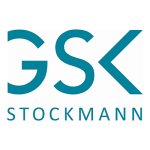The Luxembourg government declared a three-month long state of emergency on March 18 in response to Covid-19. Using emergency powers, it enacted temporary measures to allow Luxembourg companies of any type to hold non-physical general meetings for shareholders and management bodies. These measures eased companies' decision-making processes. The government also established a financial support scheme for those in temporary financial difficulty, on top of companies being given the option to delay filing their annual accounts with the Luxembourg company register RCSL.
The government also announced a series of tax measures to support companies with regards to direct and indirect tax payments.
Notwithstanding these efforts, Covid-19 poses several challenges. The biggest concern for any investor in Luxembourg, Chinese or otherwise, is liquidity. Chinese investors can mitigate their financing risk by either having enough cash on hand or by having access to a revolving credit facility (RCF) to fund the purchase price of a target. Investors can also obtain commitment letters from debt and equity financing sources. Another obstacle to M&A transactions is that banks are concerned about their ability to syndicate while the Covid-19 situation develops, which means they are reluctant to commit financing. Buyers for their part are unwilling to risk being caught in a bridge debt limbo.
Chinese investors have also faced an issue with their workforce on the ground. As Covid-19 emerged some employees had just travelled back to China for the holidays and in many cases were unable to return to Europe. For employees in Europe, safety measures were put into place.
However, the outlook for Chinese investment into Luxembourg remains optimistic, despite the slowdown in Chinese foreign direct investment (FDI) into the European Union and the temporary change of investment conditions due to Covid-19.
Ease of investing
Luxembourg has a forthcoming attitude to Chinese investment. This is characterised by a strong business and political exchange between both countries. Luxembourg continues to remain a core jurisdiction in the EU as a hub for guiding Chinese investment into other European jurisdictions, and because the Luxembourg government has kept an open mind towards Chinese investors. Over the last years, Luxembourg has experienced a growing interest from Chinese investors in carrying out their M&A transactions in the EU via Luxembourg investment structures.
Luxembourg is one of the most important hubs for the cross-border renminbi business in Europe. It already hosts the European headquarters of seven Chinese banks, which have been increasing their business activities, workforce and balance sheets year on year. These Luxembourg headquarters have been opening and continue to open branches in other EU jurisdictions, further underlining the importance of the Luxembourg banking sector. These Chinese banks are actively involved in financing M&A deals originated by Chinese investors.
As regards practical considerations for making investments, in general, Luxembourg has no specific pre-approval process, although M&A transactions may be subject to an a posteriori approval process by the competent Luxembourg authority.
Nevertheless, new EU regulations (Regulation (EU) 2019/452) on FDI entered into force in May 2019 and will be fully applicable in November 2020. Under these new regulations, EU member states are required to inform the European Commission and other member states of any FDI review. Even though Luxembourg itself does not conduct any FDI reviews, it will still be subject to this review process under the new regulations.
Generally, no restrictions on investment exist, although specific rules do apply in some sectors. For example, in acquisitions in the financial sector (banks or asset managers), an investor must notify its intention to acquire a certain threshold in a Luxembourg bank or financial sector entity to the regulator, the Commission de Surveillance du Secteur Financier (CSSF). The CSSF has the right to oppose the transaction based on reasonable grounds and certain legal criteria. Other restrictions apply in certain industries and on acquisitions of companies with securities admitted to trading on a regulated market in Luxembourg. The requirements are clearly established by the Takeover Law (the law May 19 2006 implementing Directive 2004/25/EU on takeover bids).
The Luxembourg law on competition (October 23 2011) designated the Competition Council as the competent authority to scrutinise and analyse mergers and acquisitions taking place in Luxembourg and involving Luxembourg entities. Although it is a post-closing merger clearance process, the Council has indicated its readiness to encourage market participants to run a pre-merger control check where feasible. This possibility therefore exists for investors looking to acquire a Luxembourg-based target.
Generally, there are no currency restrictions and no specific contractual provisions arise in relation to Chinese investment.
Investment structures
The most common legal entities used for Chinese investment into Luxembourg are private limited liability companies (société à responsabilité limitée – S.à r.l.) or public limited liability companies (société anonyme – S.A.). Both are commonly used as structures for acquisition companies. The S.à r.l. has a lower minimum share capital and seems to be favoured over the S.A.
As regards to investment activities by funds established by Chinese investors in Luxembourg, the most common structure seems to be the new fund vehicle, the reserved alternative investment fund (RAIF), and also, to a certain extent, the specialised investment fund (SIF). Both are set up as limited partnerships (société en commandite simple or société en commandite spéciale). In addition, the Luxembourg investment fund market offers different investment vehicles that are used (including by Chinese investors) to pool money for investment. These vehicles are alternative investment fund vehicles that can be structured as a specialised investment fund (SIF), an investment company in risk capital (société d'investissement en capital à risqué – SICAR) or a reserved alternative investment fund (RAIF).
The key requirement for setting up and using any of these vehicles is the establishment of a certain entity in Luxembourg with sufficient substance. A minimum share capital needs to be provided to the Luxembourg vehicle and management procedures need to be put in place. In establishing investment funds that carry out M&A activities, investors must verify that these comply with the regime of alternative investment fund managers and obtain the applicable approvals from of the CSSF. While RAIFs are not subject to CSSF approval, the SIF and SICAR investment vehicles must be pre-approved by the CSSF before they can begin their business activities.
Dispute resolution and tax
The most commonly used dispute resolution mechanisms are court litigation and arbitration. Arbitration is generally favoured by foreign investors because arbitral awards are easier to enforce than court judgments, more flexible and provide more privacy. By 2020, Luxembourg was party to over 100 bilateral investment protection treaties including a treaty with China, the latest version of which entered into force in 2009.
Luxembourg courts will review disputes in a neutral and independent manner. The courts typically review cases within a normal duration of time and issue titles for enforcement useable in Luxembourg and abroad – as far as other jurisdictions are covered under respective regulations and treaties. One of the most important pieces of regulation in this respect is the Recast Brussels Regulation: Regulation (EU) No 1215/2012 of the European Parliament and of the Council of December 12 2012 on jurisdiction and the recognition and enforcement of judgments in civil and commercial matters. Another is the Lugano Convention, the Convention on jurisdiction and the recognition and enforcement of judgments in civil and commercial matters, signed in Lugano on 30 October 2007. Local civil procedure code and case law is also of important.
Dispute resolution proceedings through arbitration are also possible if arbitration in Luxembourg was agreed on using the abovementioned agreements. Luxembourg's arbitration courts are used to international agreements, given Luxembourg has been increasingly used as a platform for cross-border investments, joint-venture vehicles and investment funds carrying out M&A activities worldwide.
Typically, however, parties in Luxembourg try to solve their disputes outside arbitration and courts. This is to maintain confidentiality and enable a smooth continuation of business in Luxembourg.
As regards tax, Luxembourg benefits from an extended network of double taxation avoidance treaties which is advantageous for FDI into and out of Luxembourg. Due to the application of European legislation on the parent / subsidiary relationship, typically no withholding tax applies on dividends. Furthermore, the corporate income tax rate is 17%. No specific FDI tax incentive schemes are in place, nor are there any specific reciprocal tax arrangements between Luxembourg and China.
Marcus Peter
Partner, GSK Stockmann
Luxembourg
Tel: +352 2718 0200
Marcus Peter heads the funds and private equity practice at GSK Luxembourg. Peter is a lawyer in Germany (since 2004) and Luxembourg (since 2005) and obtained his LLM and PhD degrees from the European Institute in Saarbruecken, Germany. Prior to GSK Luxembourg, Peter worked for a Luxembourg law firm from 2004 to 2016. Since 2017 he has been a partner at GSK Stockmann in Luxembourg. Peter is an expert in Luxembourg investment funds and private equity law, M&A, corporate and real estate law. He speaks German, English, French and Russian.
Marcus is a member of the Luxembourg Private Equity Association (LPEA), Chinese-Luxembourgish Chamber of Commerce, DAV Luxembourg, EVER and CBBL (Cross Border Business Lawyers).
Kate Yu Rao
Associate, GSK Stockmann Luxembourg
Tel: +352 271802-00
Kate Yu Rao is an associate at GSK Stockmann in Luxembourg focusing on investment funds, private equity, corporate and M&A. Kate passed the Chinese bar exam in 2013 and holds a qualification as a fund manager (accredited by Securities Association of China) since 2011. She studied at the East China University of Political Science and Law, at the Erasmus University Rotterdam and at Bologna University. Prior to joining GSK Stockmann, Kate worked for a leading independent Luxembourg law firm. She speaks Chinese and English.



